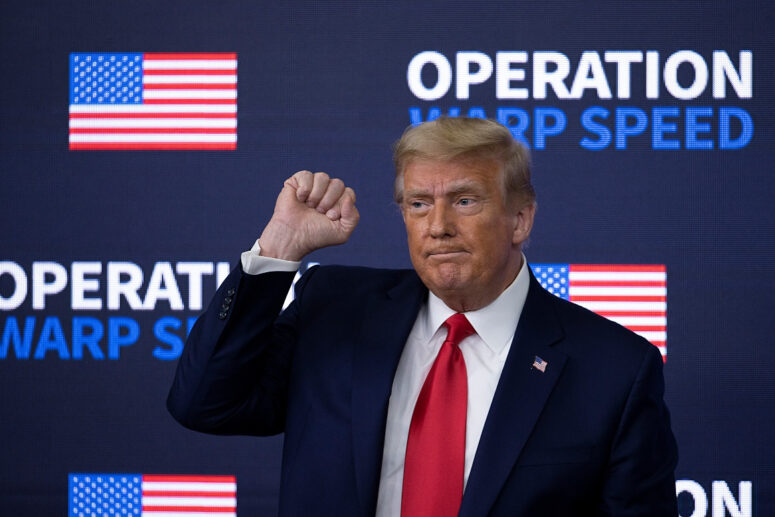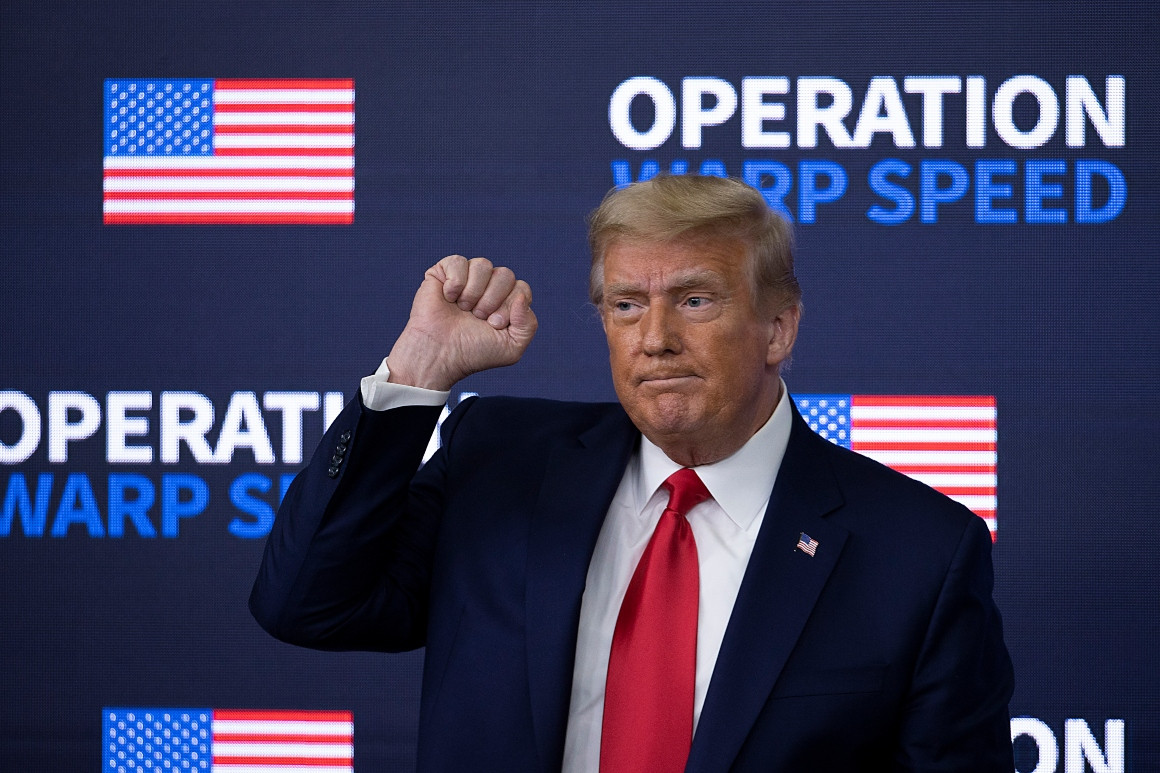
As the U.S. seeks to reduce dependence on low-cost Chinese goods, Vietnam could become a valuable partner, supplying products that Americans want but are too costly to produce domestically, positioning itself as an appealing alternative to China.
Donald Trump has been elected as the 47th president of the United States
Trump’s policies on tariffs, energy, and immigration could influence Vietnam’s economy by opening new export opportunities while adding potential trade challenges for some sectors.
Trump’s policy commitments
Coming from a business background as a well-known billionaire, Donald Trump’s approach to campaigning differs from many previous presidents. Much like his campaign for the 2017-2021 term, Trump has focused on economic and security issues, maintaining a consistent and firm stance on key policies.
Trump’s main policy commitments revolve around tax reform, fossil fuel energy, and curbing illegal immigration, all aimed at initiating what he calls “a new wave of economic growth.” His proposals could reverse many of the current administration’s policies.
His trade policies include high import tariffs – ranging from 10% to 20% on most goods and up to 60% on imports from specific countries, making it difficult for foreign goods to enter the U.S. Conversely, Trump plans to significantly reduce taxes for U.S. businesses and individuals, intending to protect American industries, encourage domestic production, reduce dependence on foreign goods, create jobs, and increase income.
During his previous term, Trump imposed tariffs of 10% and 25% on aluminum and steel imports from Canada and the EU, and launched a trade war with China, placing a 25% tariff on hundreds of billions of dollars’ worth of Chinese goods.
Trump has also been known to pressure the U.S. Federal Reserve to prevent the dollar from becoming excessively strong or weak, aiming to boost exports by influencing monetary policy.
Additionally, Trump aims to halve energy costs within a year of taking office by accelerating oil and gas production and reducing regulatory barriers for building power plants, which he argues would also help reduce inflation.
Impacts on Vietnam
As Trump prepares to enter the White House, he could quickly enact significant tax measures, potentially imposing a general 10% to 20% tariff on all imports.
Vietnam, which has enjoyed a trade surplus with the U.S. for many years, may feel the effects of Trump’s trade policies, though the extent of this impact and any potential exceptions for Vietnam remain uncertain.
Luu Chi Khang, Director of the Research Center at Kien Thiet Securities Corporation (CSI), suggests a cautiously optimistic outlook. Trump has committed to imposing a 10% tariff on all imports and a 60% tariff on imports from China. This could prompt many Chinese companies exporting to the U.S. to relocate their production, with Vietnam as a possible destination. Industrial real estate in Vietnam would likely benefit the most from this shift.
In fact, on November 6 – the day after Trump’s election victory – several Vietnamese industrial real estate stocks, including KBC, VGC (Viglacera), SZC (Sonadezi Chau Duc), and SIP (Saigon VRG), hit their daily price ceiling.
Beyond industrial real estate, export-oriented sectors could also see gains. Although U.S. tariffs on Vietnamese goods might reach 10-20%, this would still be lower than the 60% levied on Chinese products. Industries such as wood products, seafood, and textiles could benefit. However, these sectors could also face heightened competition from Chinese businesses seeking to relocate to Vietnam.
Trump’s support for the U.S. oil industry might provide limited advantages for Vietnam’s oil and gas exploration companies, although this impact is expected to be minimal. His stance on cutting subsidies for green energy could also affect Vietnam’s renewable energy sector.
CSI experts warn that exports of phones and electronics from Vietnam may be affected by higher tariffs, and Vietnamese tourism businesses catering to the U.S. market might struggle due to Trump’s stricter immigration policies. Under a protectionist regime, American companies may be less inclined to invest in Vietnam, particularly in renewable energy sectors.
Le Quang Tri, Director of Brokerage at Nhat Viet Securities, shares a similar perspective. He believes that certain sectors, such as industrial real estate, seafood, wood products, and textiles, could benefit under Trump’s policies.
Tri notes that Trump’s trade policies may drive U.S. companies to relocate production from China to Vietnam. Vietnamese seafood, particularly pangasius and shrimp, could replace Chinese products in the U.S. market, while Vietnamese wood products could substitute Chinese imports, especially with high U.S. tariffs on Chinese goods.
Vietnamese textile products could capture a share of the U.S. market traditionally occupied by Chinese goods, although they may still face higher U.S. tariffs. Additionally, Trump’s restrictions on Chinese technology may open opportunities for Vietnamese electronics to enter the U.S. market.
Meanwhile, a less volatile U.S. dollar under Trump could ease exchange rate pressures, supporting economic growth.
However, Trump’s policy pledges are yet to materialize. The exact tariffs and trade restrictions he will implement remain uncertain, as well as whether he will make exceptions for specific countries. International diplomatic relations will also influence the final outcomes.
Michael Kokalari, Chief Economist at VinaCapital, is optimistic, suggesting that Trump’s re-election will have limited impact on Vietnam’s economy. VinaCapital believes the risks surrounding potential tariffs are exaggerated, and there is little reason to fear that Trump’s victory will derail Vietnam’s healthy economic growth.
Kokalari explains that Trump’s primary goal is to pressure Chinese manufacturers to establish operations in the U.S. and hire American workers, similar to Japan’s efforts in the 1980s and 1990s. The proposed 60% tariff may serve as a bargaining tool in negotiations with China.
Furthermore, Trump has a capable economic advisory team that understands the negative impacts of excessively high tariffs, such as making it economically impractical to bring manufacturing back to the U.S. by driving up the value of the U.S. dollar.
Newly elected Vice President JD Vance has noted that the dollar’s status as a global reserve currency has caused it to be overvalued, complicating the effort to bring manufacturing jobs back to the U.S. High tariffs would exacerbate this issue.
Kokalari also emphasizes the U.S.’s strengthening economic ties with Vietnam at the highest levels of government. Trump, a populist, is aware of the positive image that “made in Vietnam” products hold among American voters, and VinaCapital sees no significant opposition from U.S. consumers.
As the U.S. seeks to reduce dependence on low-cost Chinese goods, Vietnam could become a valuable partner, supplying products that Americans want but are too costly to produce domestically, positioning itself as an appealing alternative to China.
Source: Vietnamnet.vn

